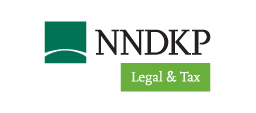Romania’s economic landscape has shown both growth and resilience this year, driven mostly by public and private investments and domestic consumption. Popovici Nitu Stoica & Asociatii Managing Partner Florian Nitu, Nestor Nestor Diculescu Kingston Petersen Partner Gabriela Cacerea, and Tuca, Zbarcea & Asociatii Managing Partner Gabriel Zbarcea report on the pulse of the Romanian economy, focusing on key sectors, such as infrastructure, energy, IT, and automotive, that are leading this growth despite challenges like inflation, labor shortages, and geopolitical uncertainties.
Healthy Economy Across Multiple Sectors
“In the first quarter of 2024, Romania’s economic landscape showed moderate growth and significant levels of resilience despite global economic challenges and the regional geopolitical context,” Cacerea begins. “As per the forecasts of both local economic analysts and those of international financial institutions and considering the inflation rate which will continue to gradually decrease in the upcoming months, the Romanian economy will likely experience slight growth in 2024, estimated at around 2.7%, mostly powered by public and private investments and domestic consumption.”
Echoing this, Nitu says that Romania “benefits from concurrent favorable factors fostering growth, such as emerging market inherent or organic development, EU-funded large infrastructure projects, as well as a rally of pre-emptive investments in industrial facilities of immediate interest to the defense sector.”
Despite the growth, there are reasons for concern. As Zbarcea notes, Romania relies too heavily on domestic consumption, with large government deficits and poor tax collection. “It seems like the entire country is dependent on private sector investment and household consumption which, in the long term, is counterproductive,” he argues, while also remaining optimistic in saying that “more foreign investors are now taking a closer look at Romania after having previously avoided our country for reasons such as the Ukraine war.”
Primary Drivers
As for the specific sectors pushing the Romanian market forward, Cacerea reports that “there are ongoing projects, investments, and government initiatives that contribute to growth – and here we can mention infrastructure development projects mainly based on EU funds, FDIs, and export growth.” She adds: “At the same time, the energy sector will continue to be one of the drivers considering both the new technologies that need to be accessed and also the increased activities in the sustainability policies area.”
Sharing Cacerea’s sentiment, Nitu reports numerous growth opportunities, including greenfield and industrial investments, energy, oil and gas, real estate, agribusiness, the financial sector – both in terms of banking and capital markets, IT and telecommunications, healthcare, and pharma. “In general, the Romanian M&A market is expected to flourish in 2024 with other transactions worth over EUR 1 billion on the horizon,” he reports.
Looking at the big picture, Cacerea shares that, in her opinion, “one of the main pillars of Romania’s economic upturn is the increase in the attracted EU funds. In terms of the private sector, the increase of changes and developments brought by CSR and sustainability policies result in increases in various sectors, like the information technology and software development sector or the energy sector.” Moreover, she stresses that “Romania has the right tools to become a hub for tech companies and investors, as well as the required resources for growth in energy – alongside, the strong relationships with Western economies, for which Romania is a significant export market.”
For Nitu, the current level of economic growth appears to be influenced by a mix of several factors, including geopolitical matters and the overall economic status of the region. Specifically, he points to “the long-awaited interest rate cuts, the readjustment of sellers’ valuation expectations, the restart or intensification of investor interest after a period of relative caution and wait-and-see they entered in the second part of 2022, and, perhaps as a corollary of the above, the increased willingness of ‘free’ capital to ‘run’ out of banks and invest in real economy assets.”
In contrast, Zbarcea focuses on specific projects, highlighting the “underground low carbon electricity transmission project in Romania, an especially important project that will enable the transmission of green energy from the eastern region of Dobrogea to western Romania and EU member states.” According to him, “the development of the National Strategic Project Units 3 and 4 Cernavoda NPP, and the refurbishment and re-tubing of Unit 1 reactor,” are important as well, as is “Romania’s first small modular reactor to be built in Doicesti.” Furthermore, he shares that “Romania’s pumped storage hydropower project Tarnita-Lapustesti currently awaits feasibility study, with pre-feasibility consultations being carried out until August 8,” and that, if it were to move forward, it would be “the largest hydroelectric load balancing system in the country.”
More Good to Come
Finally, taking aim at the road ahead, Cacerea feels that, “for now, it seems that the country’s economy is moderately expanding. However, the evolution of the national economy might be impacted by several challenges and potential signs of slowdown.” According to her, these include “persistent inflation (despite the expected inflation fall), labor market issues, especially in terms of labor shortages in certain sectors, and the unpredictable political landscape which can lead to policy uncertainty, resulting in investment deterrence.” Additionally, Cacerea worries that “potential tax measures that may be taken to counterbalance the budgetary deficit, as well as the loss of trust from both consumers and companies resulting from a lack of transparency in terms of legislative measures are some of the risks that might lead to a slowdown of investments.”
For Nitu, looking ahead prompts a multi-faceted take. “There are economic domains where the organic growth potential remains unfulfilled and, therefore, if market forces are not constrained too drastically, development and economic achievement will occur. In the same vein, in certain sectors, a process of market consolidation is still ongoing and that will yield not only significant transactional work but also economic synergies,” he says. “In what regards large infrastructure or public-private projects, here the position is more nuanced, as availability of funding depends not only on the local realities or project implementation but also on the European Union’s own political and institutional dynamics. Certain fund reallocations are possible, and they could have an adverse impact on the Romanian public investments account,” he adds.
“Given that 2024 is an election year, I would expect a higher level of public expenditure and this, in turn, will put more pressure on inflation rates and budgetary deficit,” Zbarcea notes. “Further, Romania must address – sooner rather than later – a range of internal challenges, such as the aging population and the labor shortage, especially in sectors like healthcare and medical services and tourism and hospitality,” he adds, also stressing the need for a stronger push for digitalization.
“Finally, there is the war in Ukraine and in the Middle East,” Nitu reflects in conclusion. “Both may have a direct impact on the Romanian economy, by accelerating certain divestments and even market withdrawal of strategic investors or by limiting new FDI.”
This article was originally published in Issue 11.5 of the CEE Legal Matters Magazine. If you would like to receive a hard copy of the magazine, you can subscribe here.


